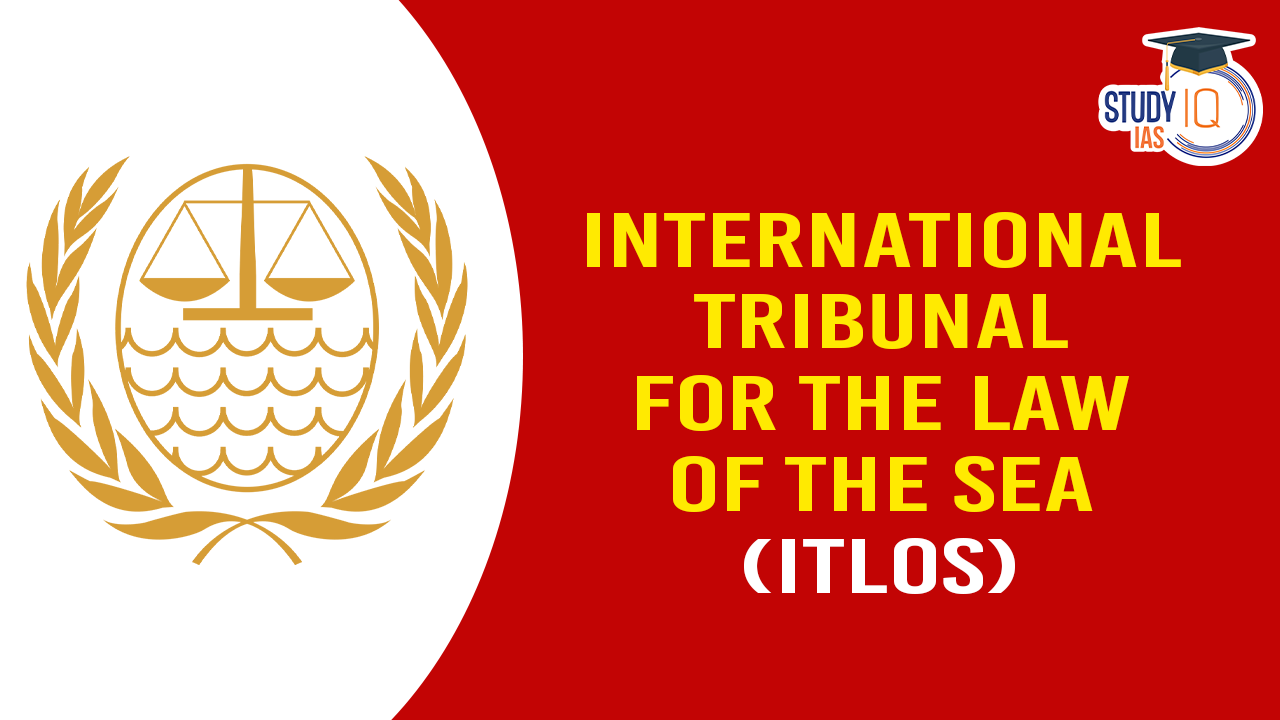Table of Contents
Context: The ITLOS took a groundbreaking step by accepting a request from the Commission of Small Island States on Climate Change and International Law (COSIS) to identify the obligations of states not party to the COSIS agreement, expanding the scope of its advisory opinion.
ITLOS Advisory Opinion on Climate Change: Key Findings
- Carbon Dioxide as a Pollutant: The ITLOS explicitly recognized carbon dioxide as a pollutant under UNCLOS, reaffirming the scientific consensus on its harmful effects on the marine environment, and fulfilling the criteria of Article 1(1)(4).
- The absorption of CO2 by the ocean leads to acidification, while the absorption of excess heat contributes to rising sea levels.
- For example: Over 90% of excess global warming heat is absorbed by the oceans, contributing to higher ocean temperatures and sea-level rise.
- The absorption of CO2 by the ocean leads to acidification, while the absorption of excess heat contributes to rising sea levels.
- General Obligation to Mitigate: The Opinion established a general obligation for states to take necessary measures to prevent, reduce, and control marine pollution from anthropogenic greenhouse gas emissions.
- This obligation, based on the precautionary principle and the polluter pays principle, extends beyond national borders and acknowledges the collective responsibility to protect the marine environment.
- Stringent Due Diligence Standard: The ITLOS emphasised that states are subject to a stringent due diligence standard in fulfilling their obligations under UNCLOS Article 194(1).
- The states must determine necessary measures based on the best available science and international standards, including the UN Framework Convention on Climate Change, the Paris Agreement, and the 1.5°C temperature goal.
Legal Significance
- No Harm Rule: The Opinion emphasised the no-harm rule in regulating shared natural resources to prevent transboundary harm.
- However, the bilateral framework of the no-harm rule and obstacles like attribution and standing hinder its application to the climate crisis.
- General Nature of Obligations: While states are obligated to take measures to reduce GHG emissions, the Opinion recognized that these obligations are general and do not mandate immediate cessation of all emissions.
- Gradual measures over time would be considered sufficient.
- Consideration of Means and Capabilities: The Opinion also acknowledged that the measures taken by states must be subject to their means and capabilities, taking into account the principle of equity.
- This means that developed countries with greater resources and historical responsibility for climate change are expected to take more ambitious action than developing countries.
- Standard of Conduct: The crux of the matter is not the existence of an obligation to mitigate, but rather the standard of conduct applicable, as highlighted by the Urgenda Foundation vs The Netherlands case.
| Urgenda Foundation vs. The Netherlands |
| Court’s Decision: The Netherlands Supreme Court mandated a GHG reduction to 25% below 1990 levels by 2020, based on scientific data and the Paris Agreement’s 2°C temperature goal. |
Limitations and Future Considerations
- General Nature of Obligations: While the Opinion establishes a general obligation to mitigate climate change, it does not specify concrete measures or targets for states. This leaves room for interpretation and potential loopholes in implementation.
- Need for Further Clarification: The ITLOS could not provide a clear methodology for assessing a state’s requisite level of mitigation action or determine the specific content of the due diligence obligation. Further clarification is needed on these aspects to ensure effective implementation of the Opinion.
- Enforcement Challenges: Enforcing international legal obligations related to climate change remains a challenge due to the lack of a centralised enforcement mechanism.
- However, the Opinion could contribute to the development of new legal tools and strategies for ensuring compliance.
| International Tribunal for the Law of the Sea (ITLOS) |
|


 Places in News for UPSC 2025 for Prelims...
Places in News for UPSC 2025 for Prelims...
 New Phase of Operation Chakra to Combat ...
New Phase of Operation Chakra to Combat ...
 Soyuz Aircraft: History, Design and Sign...
Soyuz Aircraft: History, Design and Sign...





















